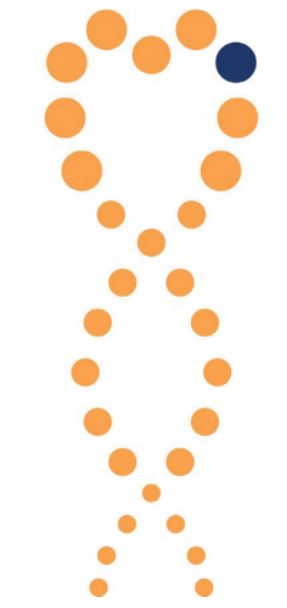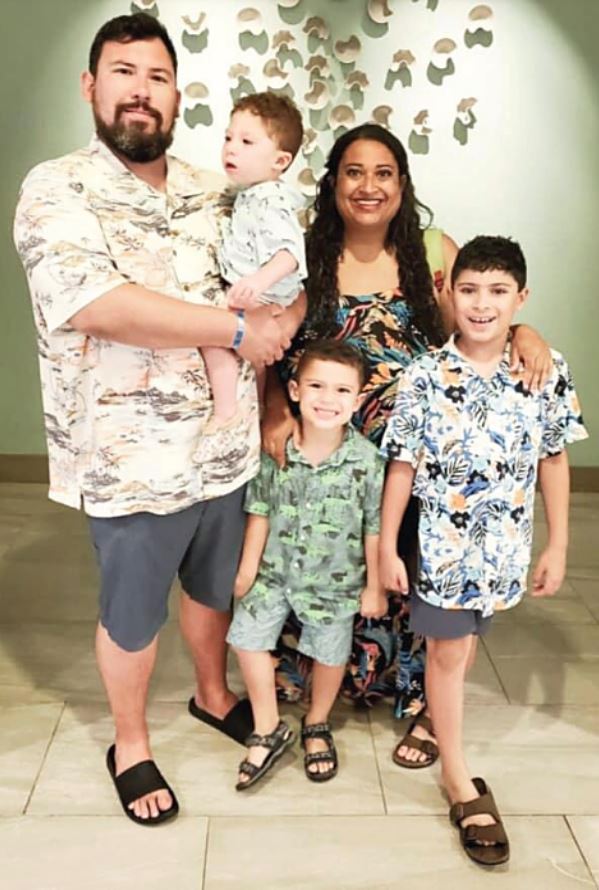ABOUT WIEDEMANN-STEINER SYNDROME:
 Wiedemann-Steiner Syndrome (WSS) is an extremely rare genetic mutation on the KMT2A gene and less than 1,000 people worldwide have been diagnosed with the syndrome, although there is a higher number suspected. In the majority of cases like Levi, the mutation is denovo or a random mutation —it is not genetically inherited–although, there are some documented cases where it has been genetically passed down. Those with WSS have a 50% chance of passing on the gene. WiedemannSteiner Syndrome (WSS) can cause hypotonia, cognitive delays, speech delays, feeding issues, seizures, chiari malformation, spinal issues, behavior issues, some have also been diagnosed with ASD and more, but like many genetic syndromes WSS is a spectrum disorder, meaning that some people have some of the aforementioned issues and some do not, and the severity of the issues varies from person to person. There is not much known about WSS because it is a fairly new discovery. WSS was described in 1989, and genetically identified in 2012 by Dr. Wendy Jones and her research team. Much of the known information has been gathered by parents who also run the Wiedemann-Steiner Syndrome Foundation that advocates for funding and research so that we can find out more about the syndrome and improve the lives of those impacted by WSS.
Wiedemann-Steiner Syndrome (WSS) is an extremely rare genetic mutation on the KMT2A gene and less than 1,000 people worldwide have been diagnosed with the syndrome, although there is a higher number suspected. In the majority of cases like Levi, the mutation is denovo or a random mutation —it is not genetically inherited–although, there are some documented cases where it has been genetically passed down. Those with WSS have a 50% chance of passing on the gene. WiedemannSteiner Syndrome (WSS) can cause hypotonia, cognitive delays, speech delays, feeding issues, seizures, chiari malformation, spinal issues, behavior issues, some have also been diagnosed with ASD and more, but like many genetic syndromes WSS is a spectrum disorder, meaning that some people have some of the aforementioned issues and some do not, and the severity of the issues varies from person to person. There is not much known about WSS because it is a fairly new discovery. WSS was described in 1989, and genetically identified in 2012 by Dr. Wendy Jones and her research team. Much of the known information has been gathered by parents who also run the Wiedemann-Steiner Syndrome Foundation that advocates for funding and research so that we can find out more about the syndrome and improve the lives of those impacted by WSS.ed by the state within the Texas Health and Human Services Commission under the federal Individuals with Disabilities Education Act (IDEA) to help promote the development and growth of children age 0-3 with developmental disabilities and other intellectual and physical disabilities. It has a Family Cost Share model where families are charged a monthly rate based on income and family size, not the amount of therapy or therapists. Little did we know then, but the ECI program would be a God-send to Levi and our family.
When ECI completes their initial evaluation of a child, they not only check for the issues parents and doctors are concerned about, but they evaluate a child's development in all areas and offer whatever services a child may need based on the results. In our initial evaluation with ECI, we found out that Levi had hypotonia (which later on would be the key to his diagnosis) and had significant physical, speech, feeding, and cognitive delays (they also check for social and emotional developmental delays). We created goals for Levi as a team for his Individual Family Service Plan (IFSP) and were set up with a speech and feeding therapist, an occupational therapist, and an early intervention specialist once a week for each therapy on alternating days. We began therapy at 10 months and started therapy via Zoom because of the pandemic, but as restrictions eased, the therapists came to our home for the therapies and now they feel like part of our family.
Speech and feeding therapy mainly focused on feeding in the beginning, as this was the more pressing issue at the time. The therapist constantly would come up with new ideas and exercises we could try to strengthen his muscles to practice chewing, biting, and swallowing. And although it took a lot of work and time and did not move at the pace we wanted, Levi moved to eating pureed vegetables, to pureed meats, to being able to eat puffs and yogurt melts,to Cheetos, and now most table foods. Now our new goals are mainly focused on speech milestones.
WORLDWIDE CONNECTIONS: The Medellin family; "Although there is not much information about the disorder, we are extremely fortunate to have a worldwide parent support group that mainly connects through social media, but has been a critical and invaluable resource for our family."
Our occupational therapist (OT) is more knowledgeable and valuable than words can express. When we started with our OT at 10 months, Levi could not sit up on his own or crawl and now, he doesn’t walk, he runs everywhere and climbs on everything in the house. Because of the low tone, much of our therapy focused on developing strength in Levi’s core and his balance. The therapist would come up with easy games and activities we could practice at home through the week to build his strength. Our OT also helped us when Levi started to have issues with biting and grabbing and exhibiting negative behaviors. She explained that Levi was having some sensory processing issues and exhibiting sensory-seeking behaviors. Our OT explained by using an analogy of a glass of water—she said for internal sensory processing, some kids